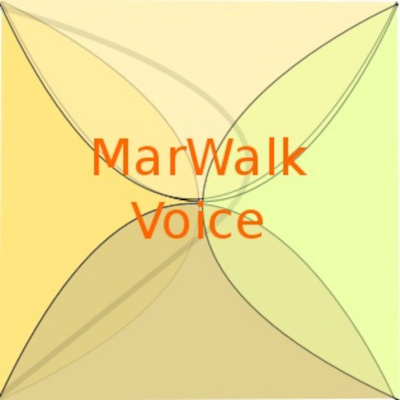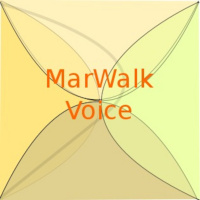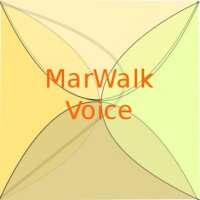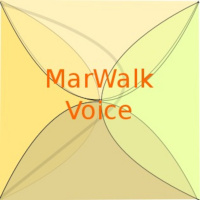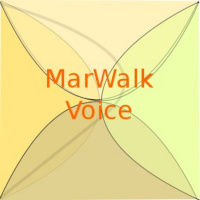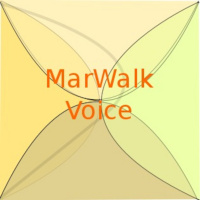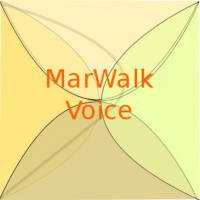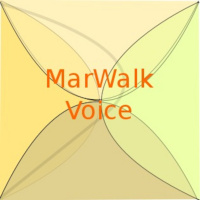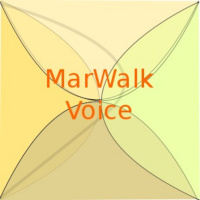Voice Over On Linux
- Autor: Vários
- Narrador: Vários
- Editor: Podcast
- Duración: 2:30:12
- Mas informaciones
Informações:
Sinopsis
A podcast about open source voice production tools. Updates at marwalk on twitterVoice Over on Linux by Mark Caldwell Walker is licensed under a Creative Commons Attribution-ShareAlike 4.0 International License.
Episodios
-
Recognizing Waveforms of Breaths and Clicks
05/12/2016 Duración: 04minImagine that you've just finished recording the perfect audio segment. Everything from cadence, emphasis, pronunciation, and enunciation all the way through to intangible feel - you just nailed it. Then when listening to the playback, you notice that in your enthusiasm - you had also over-done it with some deep breaths - and hit some hard consonants a little to emphatically. Sure you can edit them down, but first you have to *find* them. In this episode, I'll describe what these artifacts look like to me in an audio editor.
-
Record in SoX, Edit in Audacity
28/11/2016 Duración: 06minSoX is an excellent command line tool for recording and play back. But you still have to edit your recording in some type of GUI editor such as Audacity. So why not just record directly into Audacity in the first place? In this episode, I'll describe why I think that it's helpful to record your audio externally, and then import it into your audio editor.
-
Introducing Frescobaldi
21/11/2016 Duración: 06minThe LilyPond utility is a text based music typesetting tool that generates professional quality music scores - and exports those scores as playable midi files. Frescobaldi is a GUI LilyPond Music Editor that manages this process for you in parallel open windows. What this has to do with voice over is that it's an excellent way to write your own jingles or music beds for your voice work products. The opening sounder for this podcast is something I wrote originally in LilyPond, then exported it to midi and eventually to a sound file that is then imported into Audacity. You'll likely find Frescobaldi a useful addition to your audio toolbox.
-
Changing Tempo with SoX
07/11/2016 Duración: 04minYou will recall that Sox stands for "Sound eXchange," and it is "the Swiss Army knife of audio manipulation." Changing tempo means changing the length of a sound clip without speeding it or slowing it down. This is useful for when a specific word count must fit into set amount of time, such a radio spot or training slide. In this episode, we'll explore the command line options to get the results you and your clients need.
-
Let Us Be Normal
31/10/2016 Duración: 04minSomeone new to audio production might wonder what in the world is normalization in audio, and why do engineers normalize their audio? In short, audio normalization brings the levels of sound files from different sources to be about the same. And that same person might be surprised to learn that this usually does not happen naturally. We'll look at what normalization does to audio, the different types of normalization, and which one to use.
-
Audacity Your Go To Editor
24/10/2016 Duración: 05minMany lists of audio editors start off with commercial software or specialized hardware. Several of those items are not only overly expensive, but it's a good idea to confirm that they will do all you need them to do before you buy. Near the bottom of these lists is Audacity. It is often presented as a last resort option for those who have no budget. Upon closer examination, however, you may find Audacity to be your *first choice* for other reasons besides just cost. We'll look into Audacity's ease of use, depth of features, and suitability for professional use cases.
-
Sox in Your Voice Over Toolbox
17/10/2016 Duración: 06minSox stands for "Sound eXchange," and it is spelled S-o-X, with the letter "o" being lower case. SoX is presented as the "the Swiss Army knife of audio manipulation," and indeed it is. SoX is a command line tool, no GUI. But don't let that deter you. We'll go over some of its capabilities that will make you glad you have it in *your* audio Toolbox.
-
Linux is a Serious Voice Over System
10/10/2016 Duración: 04minHow do you know you're using actual open source software for your audio work? If you're on Linux now, it's very likely you already know this, because of the software repositories feeding your package manager. But it's important to know that open source is very different from free closed source or try-it-free closed source software. So, exactly what open source tools are worthy of your attention, and more importantly, your use. Here are some audio production tools available in most major Linux distribution repositories. Future episodes will include helpful how-to tips on using some of these tools -- especially the ones I like to use in my workflow.
